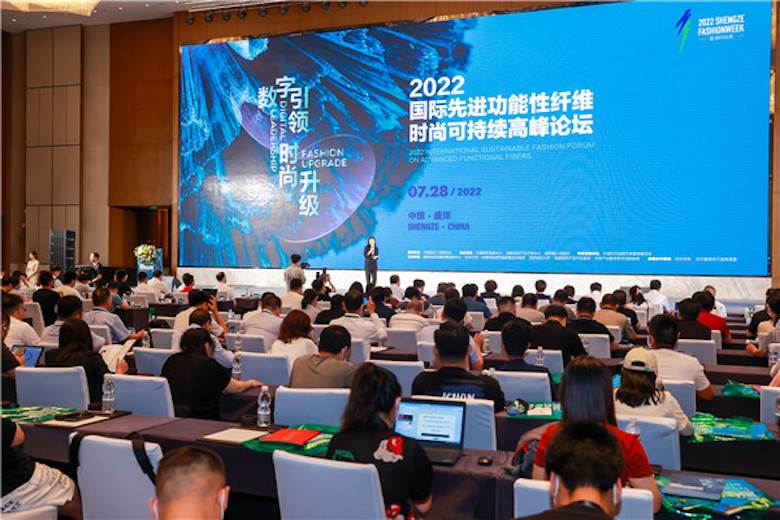Tech adoption will determine functional fibres’ sustainability, industry says

As part of a wider programme of events celebrating the tenth Shengze fashion week, a forum on sustainable advanced functional fibres was held late last month.
The town of Shengze, known for its textile history, is part of the city of Suzhou in China's Jiangsu province, just over an hour’s drive from central Shanghai.
According to Chinese media coverage of the event, the need for greater – and more globally competitive – technological adoption and innovation up and down the domestic value chain was a key thread to many talks. In this vein, president of both the International Textile Manufacturers Federation and China National Textile and Apparel Council, Sun Ruizhe, called for digital-first and varied innovation alongside the creation of well-known fibre “brands” in the field.
Similarly, representatives from technology firms including Microsoft China and Beijing-based provider Baidu delivered speeches on enterprise-level integration of data-driven processes. A spokesperson for the latter described how its artificial intelligence software was able to detect defects in chemical fibre structures, plus optimise energy management processes during printing and dyeing, for example.
Spinning technology company Shandong Zhink New Material shared its new 5G+ industrial internet platform for textiles and presented on additional in-house technologies spanning RFID data tagging and intelligent identification, advanced planning and scheduling, multi-system integration and ring spinning applications. A sales director for Lingdi Technology’s Style3D virtual sampling platform, Song Dong, suggested that China’s textile industry efficiency would only improve after “all links” in the value chain have been connected.
A handful of speakers also wove into their talks suggestions for new routes to establishing what was on several occasions painted as a “world-class” and “high-end” silk textile innovation cluster, already planned for the locality. Suzhou has been a centre for Chinese silk production for centuries.
Image: China National Textile and Apparel Council.










